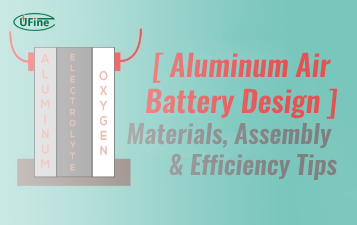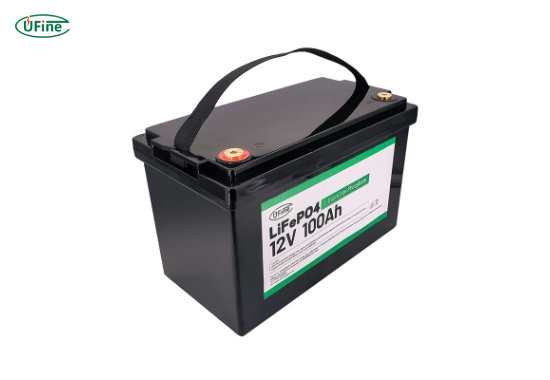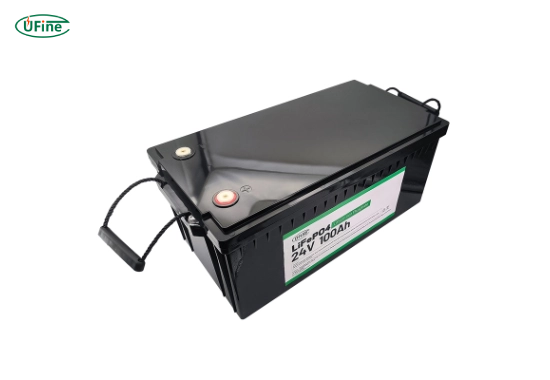When deciding between a 12V 100Ah battery and a 24V 100Ah battery, it’s essential to understand the unique features and advantages. These batteries are popular for various applications, including recreational vehicles (RVs), boats, and solar energy systems. This article will explore both battery types’ specifications, applications, and benefits to help you make an informed choice.
Part 1. What is a 12V 100Ah battery?
A 12V 100Ah battery is a versatile power source that operates at a nominal voltage of 12 volts and has a capacity of 100 amp-hours. It can deliver 100 amps for one hour or a lower current for extended periods.
Typical Applications of the 12V 100Ah Battery
- Recreational Vehicles (RVs): These batteries are commonly used in RVs to power lights, refrigerators, and other appliances during trips. They provide reliable energy for off-grid camping.
- Marine Use: A 12V battery powers navigation systems, lights, and other electronic devices in boats, which are essential for safe travel on water.
- Solar Energy Systems: Many homeowners use 12V batteries in solar setups to store energy generated during the day for use at night or during cloudy days.
Part 2. What is a 24V 100Ah battery?
On the other hand, a 24V 100Ah battery offers double the voltage while maintaining the same capacity. This type is often used in demanding applications requiring higher power levels.
Typical Applications of the 24V 100Ah Battery
- Heavy-Duty Vehicles: Trucks and buses often use 24V batteries, as they need more power to start engines and run electrical systems.
- Industrial Equipment: Forklifts and other heavy machinery benefit from the higher voltage provided by 24V batteries, enabling them to perform efficiently under load.
- High-Power Applications: These batteries are ideal for systems that require significant energy output, such as electric vehicles or large solar installations.
Part 3. Key differences between the 12V and 24V batteries
Understanding the differences between these two battery types is crucial when making your decision. Here’s a comparison table highlighting their main distinctions:
| Feature | 12V 100Ah Battery | 24V 100Ah Battery |
|---|---|---|
| Voltage | 12 volts | 24 volts |
| Capacity | 100 amp-hours | 100 amp-hours |
| Typical Applications | RVs, boats, solar systems | Heavy-duty vehicles, industrial use |
| Weight | Generally lighter | Heavier due to more cells |
| Power Output | Lower compared to 24V | Higher power output |
12V VS. 24V: Choosing the Right Battery System for Your Needs
Part 4. Advantages of using a 12V battery
The 12V battery has several key advantages:
- Widespread Compatibility: As mentioned earlier, most consumer electronics operate on a 12V system, making it easy to find compatible devices.
- Cost-Effective Solution: The lower price point makes it an excellent choice for those on a budget or just starting with battery-powered systems.
- User-Friendly Maintenance: Regular maintenance tasks like checking fluid levels (for lead-acid types) are straightforward and manageable for most users.
Part 5. Advantages of using a 24V battery
While less common in consumer applications, the 24V battery offers significant benefits:
- Higher Efficiency in Power Delivery: By operating at a higher voltage, these batteries can provide more power while using less current. This efficiency can lead to lower energy costs over time.
- Enhanced Performance in Heavy-Duty Applications: They excel in environments where high power is essential, such as construction sites or large-scale solar farms.
- Simplified Wiring Needs: The ability to use thinner wires reduces installation complexity and costs associated with heavier cabling requirements.
Part 6. Key factors to consider when choosing between 12V and 24V batteries
When deciding between a 12V vs. 24V battery, consider these factors:
- Power Requirements: Assess how much power your devices or systems need. If they require high power levels consistently, a 24V system may be more suitable.
- Compatibility with Existing Systems: Ensure your current electrical system can support either voltage without extensive modifications or additional equipment.
- Weight and Size Constraints: If space or weight is an issue (such as in RVs), consider how each battery fits into your setup without compromising performance.
- Charging Options Available: Different charging methods are available for each type of battery; ensure you have access to suitable chargers for your chosen system.
Part 7. How long will 12V and 24V batteries last?
The lifespan of both batteries depends on usage patterns and conditions:
A fully charged 12V 100Ah battery can last approximately:
- For example, if you draw a constant load of 10 A:
- Runtime = Capacity / Current Draw = 100 Ah / 10 A = 10 hours
A fully charged 24V 100Ah battery will provide a similar runtime but, due to its higher voltage characteristics, can handle heavier loads more efficiently.
Part 8. Charging options for 12V and 24V batteries
Charging methods can vary significantly between these two types:
For the 12V Batteries:
- It can be charged using standard automotive chargers or solar panels designed specifically for low-voltage systems.
- Many setups include built-in charge controllers that manage charging from solar sources effectively.
For the 24V Batteries:
- Require specialized chargers that can handle higher voltages safely.
- More efficient charging options are available through advanced solar setups or industrial-grade chargers for heavy-duty applications.
Part 9. Maintenance tips to extend the life of 12V and 24V batteries
To ensure both types of batteries last as long as possible:
- Regularly check electrolyte levels (for lead-acid types) and top up with distilled water as needed.
- Keep terminals clean and free from corrosion; this helps maintain good electrical connections.
- Avoid deep discharges; try to recharge before reaching critically low levels to prolong lifespan.
- Store batteries in a cool, dry place if not in use for extended periods; this helps prevent damage from extreme temperatures.
Part 10. FAQs
-
What are the best uses for a 12V battery?
The best uses include powering RV appliances, marine electronics, and small solar energy systems due to their compatibility with most consumer devices. -
Can I connect multiple batteries?
You can connect multiple batteries in parallel (for increased capacity) or in series (for increased voltage). However, ensure they are of the same type and capacity for optimal performance. -
How do I know if my battery needs replacing?
Signs include reduced runtime, swelling or leakage (for lead acid), or difficulty holding a charge over time. Regular testing can help determine health status. -
What is the difference between AGM and lead-acid batteries?
AGM (Absorbent Glass Mat) batteries are sealed and maintenance-free, compared to traditional flooded lead-acid batteries, which require regular maintenance and venting during charging. -
How do I safely dispose of old batteries?
Always take old batteries to designated recycling centers or hazardous waste facilities; never throw them in regular trash due to environmental hazards associated with battery chemicals.
Related Tags:
More Articles

Aluminum Air Battery Design: Materials, Assembly & Efficiency Tips
An aluminum air battery uses aluminum and air to generate power. Learn its materials, assembly steps, and tips to boost energy output and efficiency.
7 Advantages of a Heated Lithium Battery in Cold Climates
Looking to power batteries in freezing temps? Heated lithium batteries excel in cold climates. Here are 7 key benefits and how they work.
How to Choose the Best Floor Scrubber Battery for Commercial Cleaning?
Selecting the ideal floor scrubber battery ensures a long runtime, rapid charging, and minimal maintenance for efficient commercial cleaning operations.
Battery for Blower vs Battery for Leaf Vacuum: Which One Should You Choose?
Battery for blower vs leaf vacuum—learn the key differences in power, fit, and runtime to choose the right battery for your outdoor tool needs.
How to Choose the Right Battery for Blower?
Choosing the right blower battery? Consider voltage, capacity, chemistry & usage. This guide helps match the best battery for peak performance.





